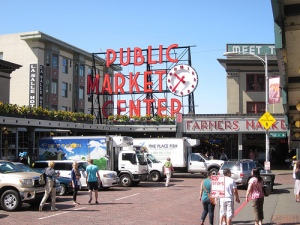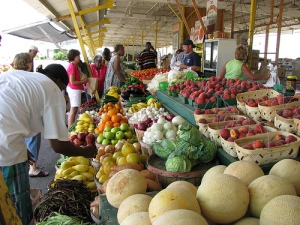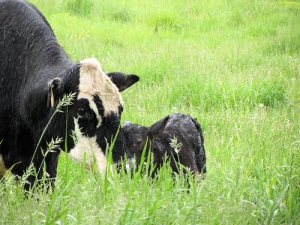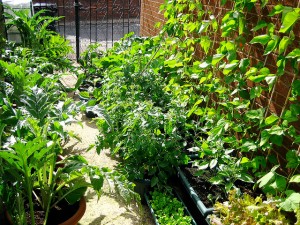(Continued from Simplicity of Wellness: Love For the Earth and its Creatures , and Grow and Cook Your Own Food )
3. Eat local.
“Shake the hand that feeds you.” – Michael Pollan, In Defense of Food: An Eaters Manifesto
There’s an organic farm about five miles from my home. When I went there once to buy some produce, the farmer, Mr. Alvarez, took time to talk to me about his farm. He was very proud that he had developed a new cultivar of chile. He was also very proud of the fact that the food he grows is safe. It’s safe for his own family. It’s safe for the farm laborers, without whom Mr. Alvarez’s produce would not make it to market. And it’s safe for us, the eaters. That day I saw where my food came from. I went into the field and picked my own very fragrant basil. I filled bags with gorgeous looking heirloom tomatoes, potatoes, chiles, zucchini, garlic, and onions. And when I returned home with my booty, my family and I enjoyed the taste of the uncommonly fresh and delicious food.
Most of us simply cannot grow all of our own food. That does not mean that we always have to settle for the well-traveled mystery foods from the grocery store. I say mystery foods because even when we buy fresh, unprocessed whole foods, we usually have no idea where exactly it came from (somewhere in California?) or whether we can trust that “natural” or “organic” label. But when we go out to the farm or visit the local farmer’s market, we get to “shake the hand that feeds” us.
Eating local foods is good for us because the foods are fresher and often safer. We can ask the farmer how exactly he deals with pests and what type of fertilizers he uses. We can chat with him about food and farming, maybe getting a feel for why he does what he does. This builds confidence and trust.
Eating locally is better for the planet as well because it circumvents the very wasteful and polluting food distribution system now in place. We don’t need millions of semi trucks on the road if we buy from the farmer next door.
Eating locally is especially important for carnivores. More and more people are becoming aware of the issues surrounding factory farmed meat, milk, and eggs. But if you’re not one of those people, I suggest you take a look at Food Inc., or one of the many other documentaries exposing the filth and cruelty of factory farming. I saw the film, but I didn’t need to. I live where the practices of factory farming are baldly exposed to the public, and it’s very distressing to see (and smell!).
“Were the walls of our meat industry to become transparent, literally or even figuratively, we would not long continue to raise, kill, and eat animals the way we do.”
― Michael Pollan
Many people are unaware of the fact that when they eat factory farmed meat, they are getting far more than they bargained for. Along with the protein and fat, we’re eating significant levels of antibiotic residue, artificial hormones, and agricultural chemicals. This is wreaking havoc on our endocrine and immune systems, and it seems to be contributing in large measure to the current epidemic of antibiotic resistance. Not only that, but the runoff from said farms pollutes the air, the waterways, and the land that we depend on.
“I dislike the thought that some animal has been made miserable to feed me. If I am going to eat meat, I want it to be from an animal that has lived a pleasant, uncrowded life outdoors, on bountiful pasture, with good water nearby and trees for shade.” – Wendell Berry
Happy cows make good milk. Chickens allowed to express their innate chickennes lay really nice eggs. Meat from pastured animals is just better in so many ways.
Eating local foods shows love and respect for the creator, ourselves, our families, and for the planet, especially it’s animals. But this may not always be easy. It’s definitely not as convenient to shop at the farmer’s market or go out to the farm. Buying locally produced grass-fed animal products often takes forsight and planning. I very often fall short of my own ideals in this respect. Alright, almost always, especially in the winter. But I try. And when I succeed, my body thanks me and my conscience is comfortable.
Look for sources of local food at:
Eatwild’s Directory of U.S., Canadian and International Farms & Ranches
Photos by Doug Kerr , Natalie Maynor , and Rachel Kramer




